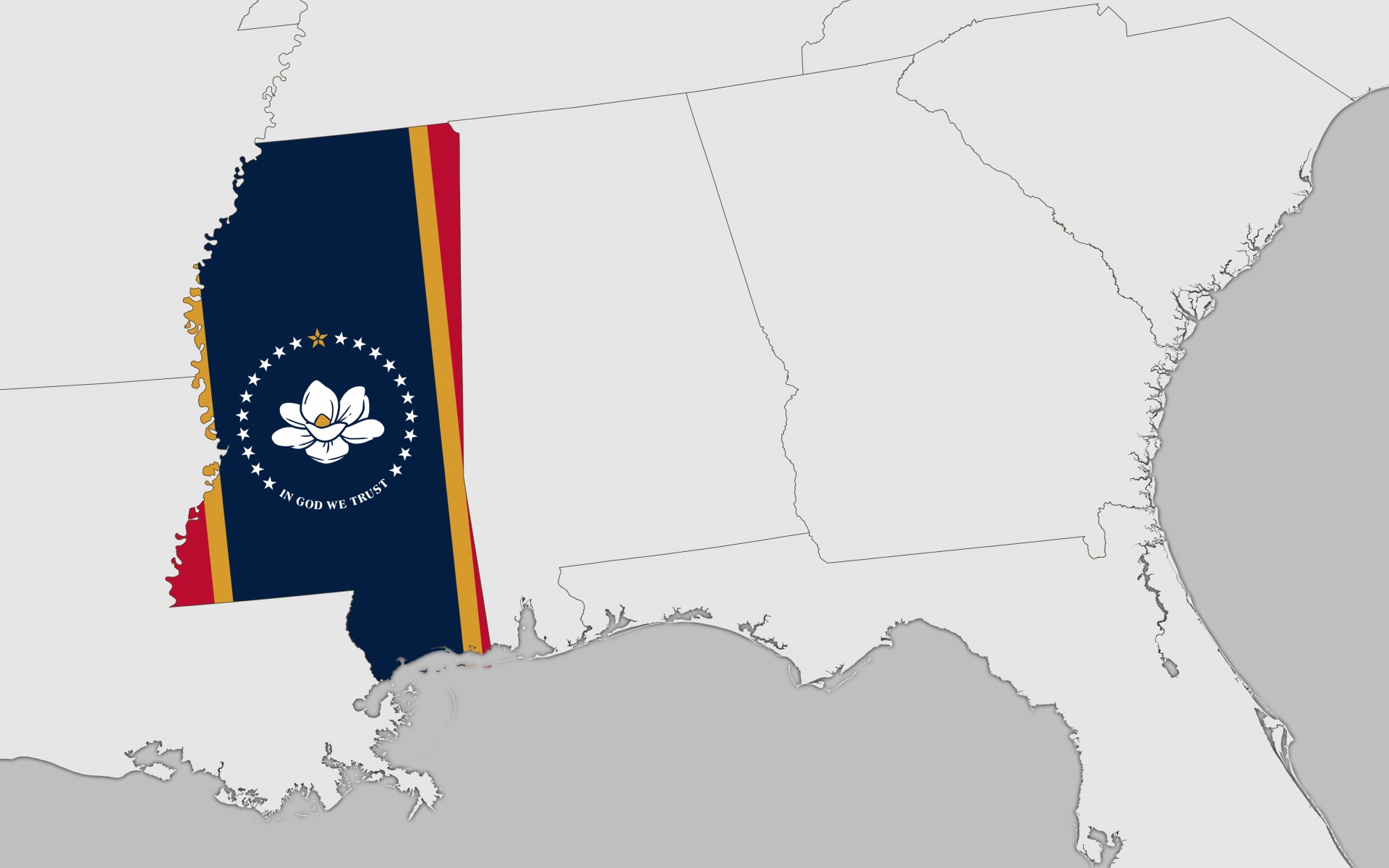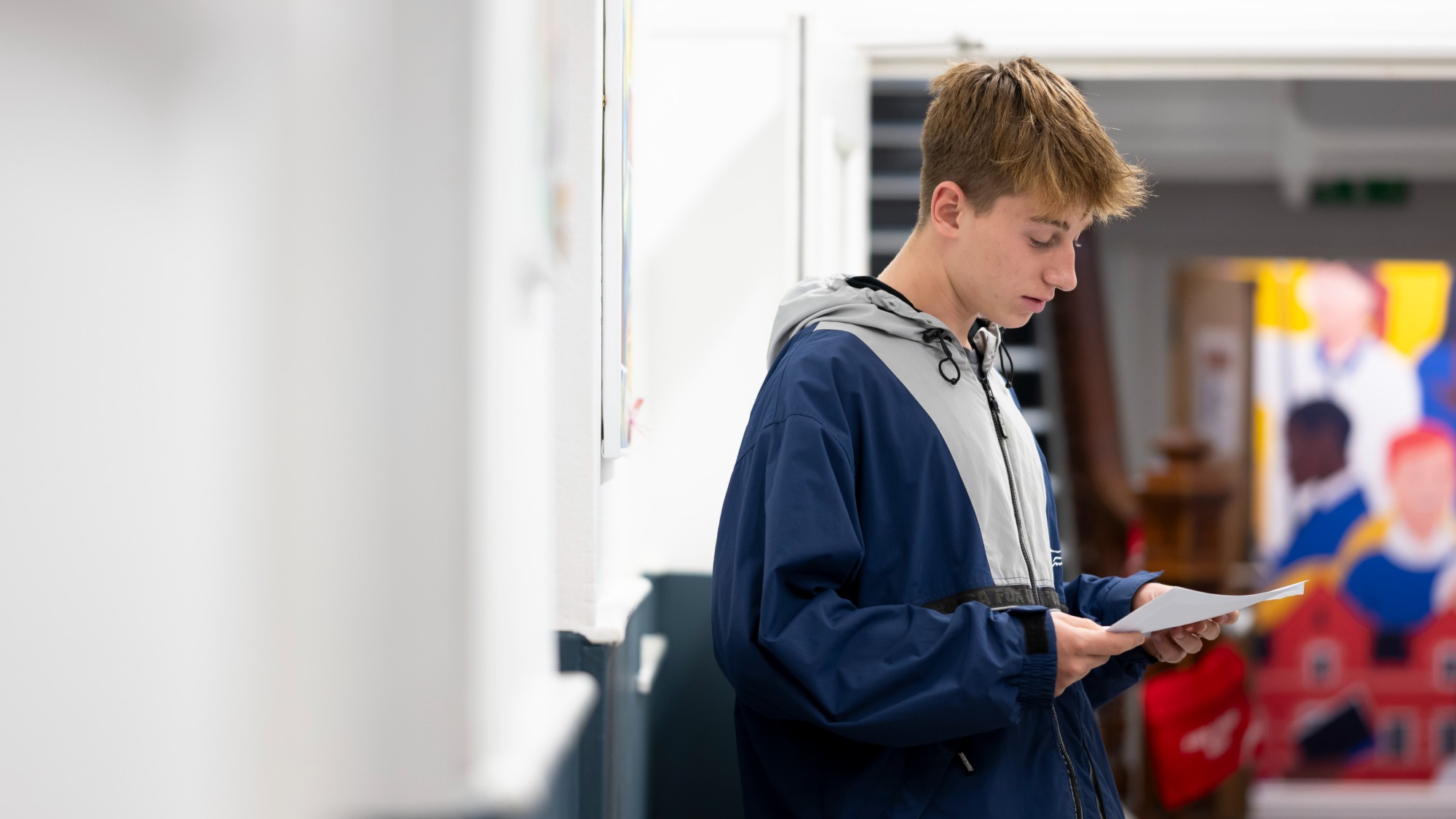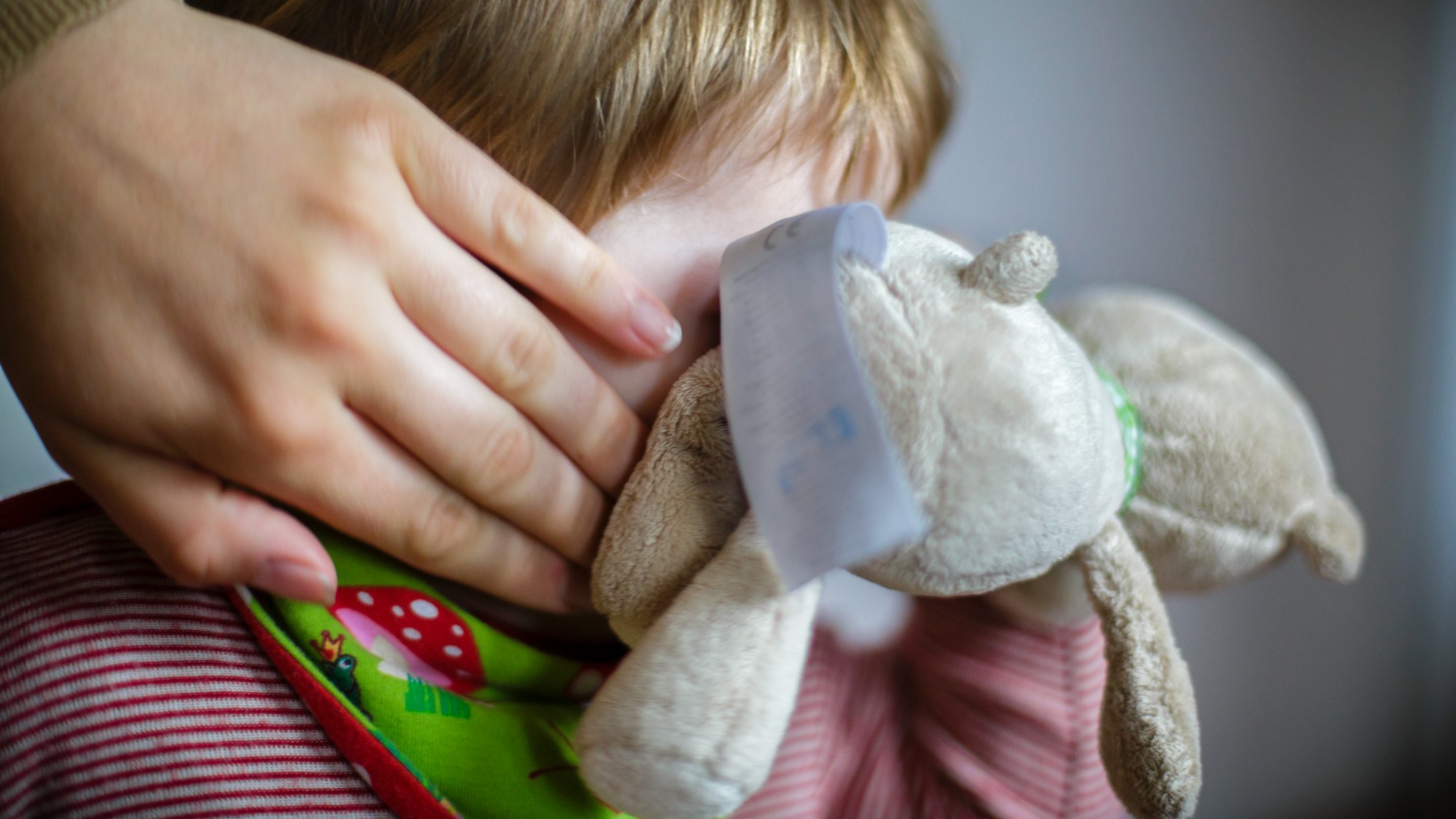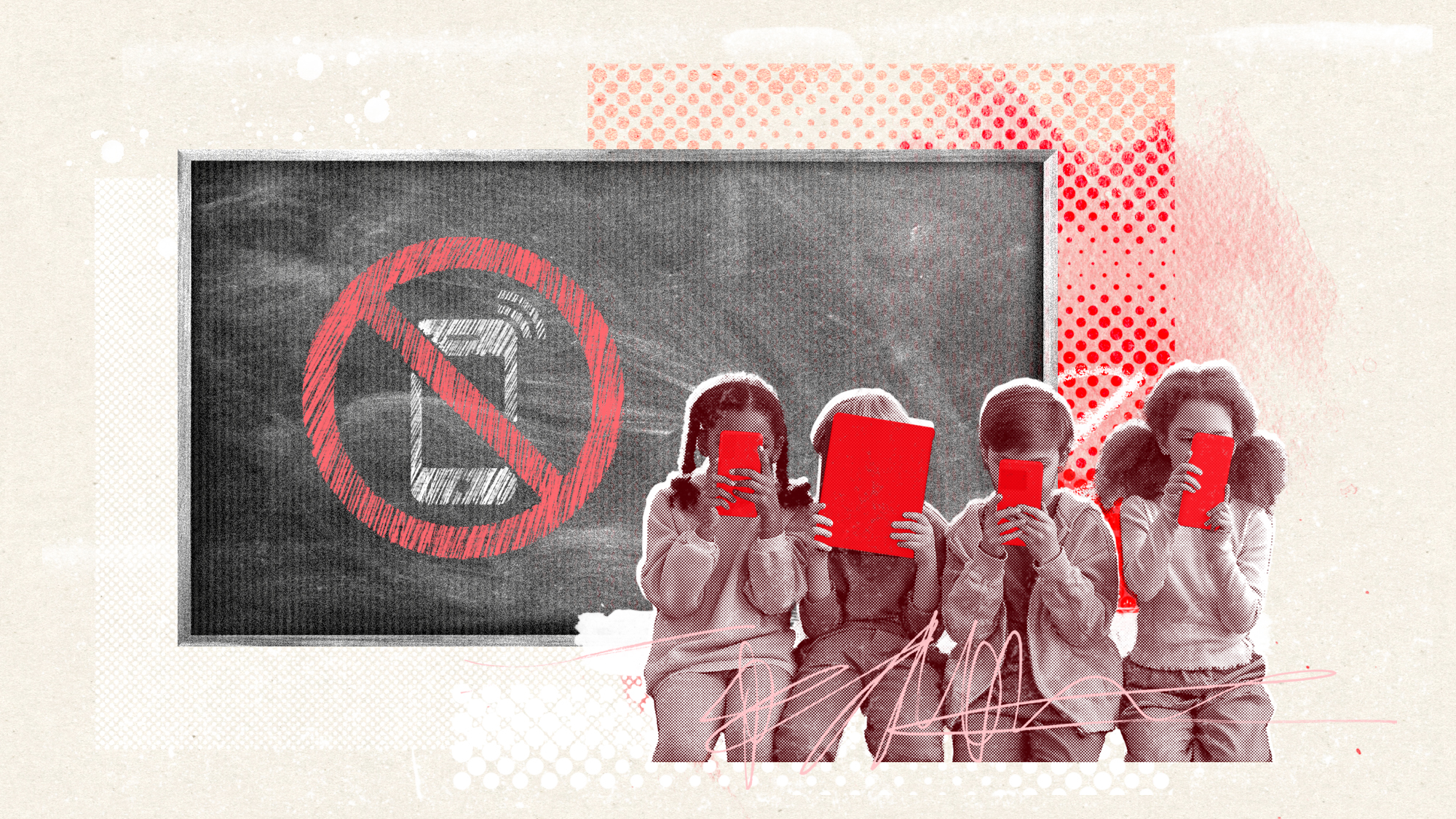Smartphones and children: are we too hung up on the dangers?
Schools told to crack down on mobile phones but more than 90% of 11-year-olds in the UK have one

A free daily email with the biggest news stories of the day – and the best features from TheWeek.com
You are now subscribed
Your newsletter sign-up was successful
The government's new guidance on mobile phone use in schools has reignited the debate over the dangers of smartphones for children.
More than 4,000 parents have joined Smartphone Free Childhood, a WhatsApp group created by parents "committed to barring" young children from having smart devices, said The Guardian. Research by government watchdog Ofcom found that 91% of 11-year-olds in the UK have a smartphone, as do 44% of nine-year-olds.
'Direct line to bullying, porn and grooming'
The pressure to get children a mobile phone before they start secondary school is "huge", said Daisy Greenwell, who helped set up Smartphone Free Childhood. "Nobody wants their kid to feel ostracised," she wrote for Grazia.
The Week
Escape your echo chamber. Get the facts behind the news, plus analysis from multiple perspectives.

Sign up for The Week's Free Newsletters
From our morning news briefing to a weekly Good News Newsletter, get the best of The Week delivered directly to your inbox.
From our morning news briefing to a weekly Good News Newsletter, get the best of The Week delivered directly to your inbox.
But "handing your child a direct line into a world of online bullying, porn, grooming, and the anxiety that comes with scrolling and social media, feels equally unappealing". Scientific evidence shows that "the younger a child is when they get a mobile phone, the higher their incidence of mental illness".
New guidance published this week by the Department for Education (DfE) backs headteachers in prohibiting the use of mobile phones throughout the school day, including at break times. Most schools already ban or limit the use of smartphones, but the guidance will "ensure there is a consistent approach across all schools", said the DfE.
A "well-enforced ban" on smartphones in school "is exactly what is needed", said The Times in an editorial. Future generations will "come to regard the uncontrolled manner in which young minds have been carelessly exposed to a little-regulated online world as indicative of a wanton lack of vigilance on the part of legislators".
It is "obvious" that restricting the use of smartphones on school grounds should be a priority if students' education and well-being are not to suffer. The new guidance issued by the DfE is "an encouraging start; it attempts to wrest the status quo back to a presumption that schools should be a smartphone-free environment".
A free daily email with the biggest news stories of the day – and the best features from TheWeek.com
Smartphones 'crucial' for vulnerable children
Children need protecting, said Hugo Rifkind in The Times, but "when we talk about teens being susceptible to the ravages of technology, the unspoken assumption is often that older people are less so". In fact, "the opposite may be true". While there are obvious problems with unfettered access to the internet from a young age, the question remains: "Do we really think that an olde worlde offline childhood would prepare them much better?"
Those calling for a ban on smartphones for under-16s are unaware of what a "crucial" lifeline they can be for vulnerable children, said Esther Rantzen, founder of Childline, in a letter to The Telegraph.
The majority of children who contact the charity do so online by using the live chat service, email or message boards. When Rantzen asked a group of young people visiting Childline whether they would prefer to call or use the internet if they were suffering, they all said they would find it easier to use messaging. "That is where children are these days, and where Childline needs to be to help them, and for that, they need a smartphone," said Rantzen.
Although calls for a smartphone-free childhood are "worth considering", said The Northern Echo, the pressure should be on social media companies "to ensure all their content is suitable".
"Smartphones are here to stay and, in the future, are going to become even more enmeshed in every aspect of our lives," added the paper. Young people need to be made aware of the dangers as well as the positives – "and taught how to use them safely because in the world outside the classroom, they will be with them every single second of every single day".
Sorcha Bradley is a writer at The Week and a regular on “The Week Unwrapped” podcast. She worked at The Week magazine for a year and a half before taking up her current role with the digital team, where she mostly covers UK current affairs and politics. Before joining The Week, Sorcha worked at slow-news start-up Tortoise Media. She has also written for Sky News, The Sunday Times, the London Evening Standard and Grazia magazine, among other publications. She has a master’s in newspaper journalism from City, University of London, where she specialised in political journalism.
-
 Local elections 2026: where are they and who is expected to win?
Local elections 2026: where are they and who is expected to win?The Explainer Labour is braced for heavy losses and U-turn on postponing some council elections hasn’t helped the party’s prospects
-
 6 of the world’s most accessible destinations
6 of the world’s most accessible destinationsThe Week Recommends Experience all of Berlin, Singapore and Sydney
-
 How the FCC’s ‘equal time’ rule works
How the FCC’s ‘equal time’ rule worksIn the Spotlight The law is at the heart of the Colbert-CBS conflict
-
 American universities are losing ground to their foreign counterparts
American universities are losing ground to their foreign counterpartsThe Explainer While Harvard is still near the top, other colleges have slipped
-
 How Mississippi moved from the bottom to the top in education
How Mississippi moved from the bottom to the top in educationIn the Spotlight All eyes are on the Magnolia State
-
 The Trump administration’s plans to dismantle the Department of Education
The Trump administration’s plans to dismantle the Department of EducationThe Explainer The president aims to fulfill his promise to get rid of the agency
-
 How will new V level qualifications work?
How will new V level qualifications work?The Explainer Government proposals aim to ‘streamline’ post-GCSE education options
-
 England’s ‘dysfunctional’ children’s care system
England’s ‘dysfunctional’ children’s care systemIn the Spotlight A new report reveals that protection of youngsters in care in England is failing in a profit-chasing sector
-
 The pros and cons of banning cellphones in classrooms
The pros and cons of banning cellphones in classroomsPros and cons The devices could be major distractions
-
 School phone bans: Why they're spreading
School phone bans: Why they're spreadingFeature 17 states are imposing all-day phone bans in schools
-
 Send reforms: government's battle over special educational needs
Send reforms: government's battle over special educational needsThe Explainer Current system in 'crisis' but parents fear overhaul will leave many young people behind